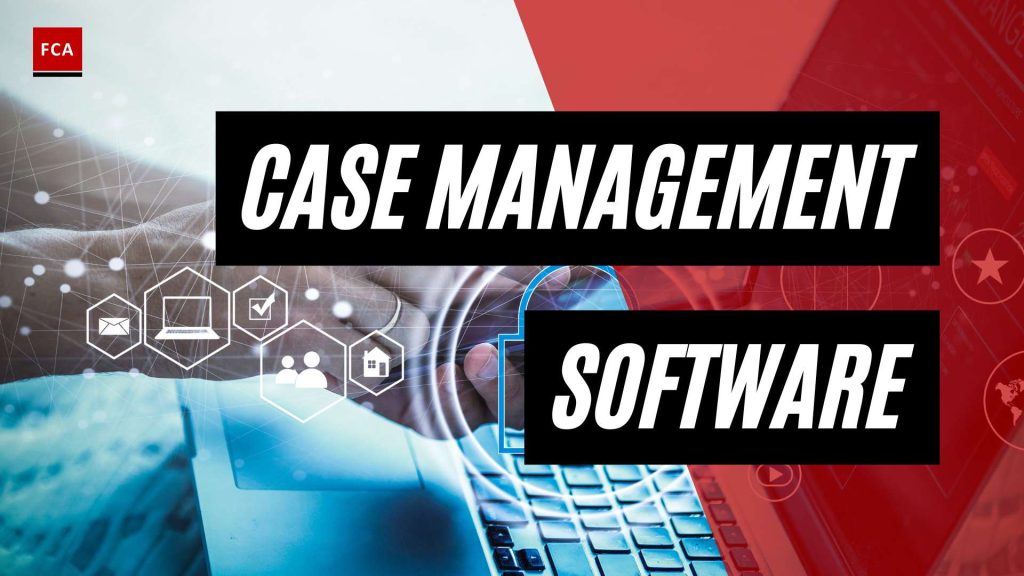AML Case Management Software: Streamlining Compliance Efforts
Efficient anti-money laundering (AML) processes are crucial for organizations to combat financial crimes and meet regulatory requirements. AML case management software plays a significant role in streamlining compliance efforts by providing a centralized platform to manage, investigate, and report cases of illegal activity.
The Importance of AML Case Management
AML case management is essential for organizations in various industries, including banking, finance, and other sectors vulnerable to money laundering risks. It ensures that suspicious activities and transactions are promptly identified, investigated, and reported to regulatory authorities.
With the increasing complexity of financial crimes, manual case management processes can be time-consuming, prone to errors, and inefficient. AML case management software automates these processes, enabling organizations to handle a large volume of cases more effectively and efficiently.
By implementing a robust AML case management system, organizations can:
- Prioritize cases based on risk levels and allocate resources accordingly.
- Standardize investigation workflows, ensuring consistency and adherence to regulatory guidelines.
- Easily generate and file suspicious activity reports (SARs) to regulatory authorities.
- Enhance collaboration and communication among compliance teams, enabling seamless information sharing.
- Improve compliance monitoring and reporting capabilities.
Features and Benefits of AML Case Management Software
AML case management software offers a range of features and benefits that enhance compliance efforts and streamline operations. These include:
-
Adapting to Changing AML Regulations: AML regulations are constantly evolving to address emerging money laundering trends. AML case management software should be adaptable to these changes, ensuring organizations remain compliant with the latest regulatory requirements (FOCAL).
-
Automated Suspicious Activity Reports (SARs) Filing: Filing SARs is a critical aspect of AML compliance. AML case management software automates this process, reducing the time and effort required to generate and file reports. It ensures accurate and timely reporting to regulatory authorities, enabling organizations to fulfill their reporting obligations effectively (FOCAL).
-
Utilizing Artificial Intelligence (AI) and Machine Learning (ML): Effective AML case management software utilizes AI and ML technologies to enhance compliance operations. These technologies help reduce false positive alerts, improve detection of suspicious activities, and optimize the efficiency of the system.
-
Optimizing Team Allocation: AML case management software allows organizations to optimize team allocation based on geographical locations, specific expertise, and workload. This ensures efficient distribution of tasks, improves collaboration, and maximizes the effectiveness of the compliance team (FOCAL).
By leveraging the features and benefits of AML case management software, organizations can streamline their compliance efforts, reduce investigation time, enhance reporting accuracy, and strengthen their overall AML compliance framework.
In the next section, we will explore key considerations organizations should keep in mind when choosing AML case management software, including adapting to changing AML regulations, automated SARs filing, utilization of AI and ML, and optimizing team allocation.
Key Considerations for Choosing AML Case Management Software
When selecting AML case management software, there are several key considerations that organizations should keep in mind. These considerations ensure that the chosen software is capable of effectively streamlining compliance efforts and adapting to the changing landscape of anti-money laundering regulations.
Adapting to Changing AML Regulations
One of the most critical factors to consider when choosing AML case management software is its ability to adapt to changing AML regulations. Money laundering methods and regulations evolve over time, and it’s crucial for organizations to stay up to date with the latest compliance requirements. The chosen software should provide regular updates and enhancements to align with the ever-changing AML landscape. This ensures that organizations can maintain compliance and effectively combat new and emerging money laundering threats.
Automated Suspicious Activity Reports (SARs) Filing
Efficient and timely filing of Suspicious Activity Reports (SARs) is a crucial aspect of AML compliance. Manual filing processes can be time-consuming and prone to errors. AML case management software should offer automated SARs filing features, enabling organizations to streamline the process and improve productivity. By automating this task, compliance teams can focus their efforts on investigating and addressing suspicious activities rather than being burdened by administrative tasks.
Utilizing Artificial Intelligence (AI) and Machine Learning (ML)
Effective AML case management relies on the utilization of Artificial Intelligence (AI) and Machine Learning (ML) techniques. These technologies can enhance the efficiency and accuracy of the software in detecting and analyzing suspicious activities. By leveraging AI and ML, organizations can reduce false positive alerts, improve the detection of potential money laundering activities, and optimize the overall effectiveness of their AML operations. The chosen software should incorporate advanced AI and ML capabilities to enhance the system’s ability to identify and prioritize high-risk cases.
Optimizing Team Allocation
Another important consideration is the software’s capability to optimize team allocation. AML case management software should provide tools and features that allow organizations to allocate resources effectively. This can be achieved by considering factors such as geographical locations, workload distribution, and skill sets within the compliance team. By optimizing team allocation, organizations can enhance collaboration, improve efficiency, and ensure that the right individuals are assigned to the most relevant cases.
By carefully considering these key factors when choosing AML case management software, organizations can ensure that they select a solution that aligns with their compliance needs, adapts to changing regulations, automates critical processes, utilizes advanced technologies, and optimizes team allocation. This enables organizations to enhance their AML compliance efforts, streamline operations, and effectively combat money laundering activities.
Enhancing AML Compliance with Case Management Software
To enhance anti-money laundering (AML) compliance efforts, organizations can leverage the power of AML case management software. This software automates the process of managing, investigating, and reporting cases of illegal activity, streamlining the production and filing of reports (Unit21). Let’s explore some key aspects of how case management software enhances AML compliance.
Reducing Investigation Time and Streamlining Workflows
One of the primary benefits of effective AML case management software is the reduction in investigation time through intuitive workflows. By automating manual processes and providing a centralized platform, the software enables compliance teams to focus on value-adding tasks rather than mundane processes. This not only increases efficiency but also allows investigators to dedicate more time to in-depth analysis and decision-making (FOCAL).
Integrated Tools for Effective AML Operations
AML case management software offers a comprehensive suite of integrated tools that facilitate effective AML operations. These tools include identity verification, transaction monitoring, sanctions and politically exposed persons (PEP) screening, risk assessment and management, suspicious activity reporting, investigation optimization, and alert scoring. Each tool serves a specific function in strengthening AML compliance operations (Unit21).
By leveraging these integrated tools, organizations can enhance their ability to detect and prevent money laundering activities. The software automates risk management processes, making it easier for financial institutions to monitor customer information and detect abnormal transactions. Modern AML case management solutions often incorporate artificial intelligence (AI) and machine learning (ML) techniques to optimize system performance, resulting in quicker, more agile, and more accurate AML operations and management.
AML Software Solutions: ACTICO Compliance Suite, Fenergo, SAS Anti-Money Laundering, RiskScreen
Several AML software solutions exist in the market today, each offering unique features and benefits. Some notable AML case management software solutions include:
-
ACTICO Compliance Suite: ACTICO Compliance Suite provides comprehensive AML capabilities, including transaction monitoring, sanctions screening, risk assessment, and case management. It offers a customizable and scalable platform to meet the specific needs of financial institutions.
-
Fenergo: Fenergo’s AML software solution enables financial institutions to comply with AML regulations by automating customer due diligence, risk assessment, and ongoing monitoring. It provides a centralized platform for managing AML compliance across multiple jurisdictions.
-
SAS Anti-Money Laundering: SAS Anti-Money Laundering solution offers advanced analytics and data-driven insights to detect and prevent money laundering activities. It provides robust case management capabilities to streamline investigations and reporting.
-
RiskScreen: RiskScreen’s AML software solution combines cutting-edge technology with risk-based approaches to enhance AML compliance. It offers an intuitive case management system and integrated tools for efficient AML operations.
These software solutions, among others, empower organizations to strengthen their AML compliance efforts and mitigate the risks associated with money laundering activities.
By utilizing AML case management software and its integrated tools, organizations can streamline their compliance processes, reduce investigation time, and enhance their overall AML operations. It is essential for organizations to choose a software solution that aligns with their specific requirements and regulatory obligations to ensure optimal AML compliance.
Challenges and Trends in AML Compliance
Ensuring effective and robust anti-money laundering (AML) compliance is not without its challenges. Financial institutions face various hurdles in their efforts to detect and prevent money laundering activities. Additionally, evolving trends in AML compliance require institutions to stay ahead of the curve. Here are some of the key challenges and trends in AML compliance:
Insufficient Data and Technology Resources
One significant challenge faced by financial institutions is the lack of adequate data and technology resources to effectively detect and prevent money laundering activities. This includes insufficient data on customers, transactions, or third parties, as well as a shortage of necessary analytics tools. Access to comprehensive and accurate data is crucial for identifying suspicious activities and potential money laundering risks. Small and medium-sized companies, in particular, may struggle with limited resources, making it challenging for them to invest in robust AML systems and provide outsourcing solutions. To overcome this challenge, financial institutions can explore partnerships with technology providers that offer AML software solutions to enhance their data analysis capabilities.
Cross-Border and Multi-Jurisdictional Compliance
In an increasingly globalized financial landscape, managing cross-border and multi-jurisdictional AML compliance standards can be complex. Different jurisdictions have their own specific regulations and requirements, making it difficult for financial institutions to ensure compliance across their operations. Compliance teams must stay up to date with the evolving AML regulations in multiple jurisdictions while establishing robust processes and systems to detect and prevent money laundering activities. The increased need for customer due diligence and the identification of beneficial ownership can be particularly challenging and resource-intensive. Financial institutions need to invest in comprehensive AML compliance software that can adapt to changing regulations and streamline cross-border compliance efforts (Sanction Scanner).
Staffing and Training Challenges
Adequate staffing with skilled AML professionals poses a challenge for financial institutions. There is often a high demand for qualified candidates in the AML field, leading to a shortage of experienced professionals. Recruiting, retaining, and training competent AML professionals can be costly, especially with high turnover rates. Institutions need to establish comprehensive training and development programs to equip their employees with the necessary knowledge and skills to effectively tackle money laundering risks. Background checks and online training modules can also help reduce onboarding expenses and ensure a well-trained AML workforce (Sanction Scanner).
Complexities of Integration and Data Standardization
AML compliance involves complex procedures and the integration of various technology solutions. Financial institutions face challenges in integrating know-your-customer (KYC) data systems, transaction monitoring tools, and other AML software across their organization. The complexity and time-consuming nature of these integration processes can hinder the efficiency of AML operations. Furthermore, data quality standardization and enhancement are crucial for centralized analysis of fraud and financial crimes. However, institutions often encounter difficulties due to data being stored in various formats and systems. To address these challenges, financial institutions should adopt modern AML software solutions that offer seamless integration capabilities and robust data standardization features.
Evolving Money Laundering Methods
Criminals are constantly evolving their money laundering methods, posing a significant challenge for financial institutions. They may employ intricate techniques such as using shell companies, offshore accounts, and digital currencies to obscure the source of illicit funds. Complex transactions, including layering and integration, further complicate the detection and tracking of money laundering activities. To combat these evolving methods, financial institutions must adopt a proactive approach to AML compliance. This involves closely monitoring new money laundering trends, updating their systems accordingly, and leveraging advanced technologies such as artificial intelligence (AI) and machine learning (ML) to enhance their detection capabilities (Sanction Scanner).
By recognizing and addressing these challenges, financial institutions can strengthen their AML compliance efforts and stay ahead of the constantly evolving landscape of financial crime. Implementing robust AML case management software can help streamline AML processes, enhance detection capabilities, and ensure compliance with regulatory requirements.
AML Case Management Software: Ensuring Compliance and Efficiency
In the realm of anti-money laundering (AML) compliance, utilizing robust case management software is crucial for ensuring both compliance and operational efficiency. This section explores various aspects of AML case management software, including key performance indicators (KPIs) for efficiency and performance tracking, upgrading AML systems to meet regulatory demands, and showcasing some notable AML case management software solutions.
AML KPIs for Efficiency and Performance Tracking
To gauge the efficiency of AML processes and measure performance, it is essential to establish key performance indicators (KPIs). These KPIs help financial institutions track the effectiveness of their AML case management efforts. Some common AML KPIs for efficiency include:
- Total volume of alerts: Tracking the total number of alerts generated by AML systems helps assess the workload of compliance teams and identify areas for optimization.
- False-positive rate: Measuring the rate of false-positive alerts, which are alerts that do not indicate actual money laundering or illicit activities, helps reduce unnecessary investigations and improve efficiency.
- Number of monitoring scenarios to rules: This KPI measures the ratio of monitoring scenarios to rules configured in the AML system, ensuring that the system covers a wide range of potential risk scenarios.
By monitoring these KPIs, financial institutions can identify bottlenecks, improve workflows, and enhance the overall efficiency of their AML operations. It is crucial to utilize integrated AML case management software that streamlines and automates AML workflows, maintains an audit trail, and automatically generates Suspicious Activity Reports (SARs) when necessary. To learn more about AML software solutions, visit our comprehensive guide on aml software solutions.
Upgrading AML Systems to Meet Regulatory Demands
In the face of evolving AML regulations and growing complexity in financial crimes, financial institutions must ensure their AML systems are up to par with regulatory demands. Regulators are pushing for the adoption of more advanced AML software systems that leverage automation, artificial intelligence (AI), and machine learning (ML) technologies. Upgrading AML systems offers the following benefits:
- Enhanced detection capabilities: Advanced AML systems can better identify suspicious activities, reduce false positives, and improve the accuracy of risk assessments.
- Streamlined investigations: Upgraded systems can streamline the investigation process, enabling efficient case management and minimizing the time spent on manual tasks.
- Regulatory compliance: Keeping pace with regulatory changes is crucial. Upgraded AML systems ensure compliance with the latest regulations and enable financial institutions to adapt swiftly.
To meet these demands, financial organizations need to assess their current AML case management systems and determine if an upgrade is necessary. Upgrading to a more advanced AML system can lead to improved efficiency and better risk management. For more information on AML compliance software, refer to our dedicated guide on aml compliance software.
Unit21’s Case Management Software Solution
Unit21 offers a comprehensive case management software solution for AML that helps financial institutions optimize their compliance efforts. With features designed to provide better-tuned alerts, automate reporting, streamline workflows, and lead to operational cost savings, Unit21’s software offers a powerful framework for combating financial crimes. It is easily integrated into existing compliance tech stacks, making it a versatile choice for organizations looking to enhance their AML case management capabilities. To learn more about Unit21’s case management solution, visit their official website.
Persona’s AML Case Management Software
Persona provides AML case management software that facilitates seamless onboarding of patients and adapts to regional healthcare regulations. Their software enables faster onboarding of learners and instructors while ensuring academic integrity. With a focus on building and automating compliance operations in one place, catching and preventing fraud efficiently, and meeting shifting KYC/AML regulations, Persona’s AML case management software helps financial institutions maintain compliance and secure user accounts. Additional information about Persona’s software can be found on their website.
AML UAE’s AML Case Management Software
AML UAE offers an AML case management software solution designed to assist financial institutions in effectively managing AML investigations and compliance tasks. By implementing AML case management software, financial institutions can reduce the risk of non-compliance penalties and reputational damage associated with money laundering activities. Such software streamlines the process of handling compliance activities and investigations, thereby enhancing operational efficiency in combating financial crimes. For more details about AML UAE’s AML case management software, visit their official website.
KYC Hub’s AML Case Management Software
KYC Hub provides AML case management software that helps financial institutions comply with regulations by streamlining the process of managing alerts, analyzing data, and reporting suspicious activities effectively. The use of AML case management software has steadily increased due to evolving regulations and the growing complexity of financial crimes. By automating many tasks, enhancing the efficiency of compliance teams, and reducing manual errors, AML case management software improves the accuracy of investigations. To explore KYC Hub’s AML case management software solution further, visit their official website.
By leveraging advanced AML case management software solutions, financial institutions can effectively ensure compliance, streamline processes, and enhance operational efficiency in the fight against money laundering and financial crimes. These software solutions offer a range of features to optimize AML workflows, automate reporting, and adapt to changing regulatory demands. The future of AML case management software lies in continued regulatory evolution, increased automation, and strengthened risk management frameworks.
The Future of AML Case Management Software
As AML regulations continue to evolve, the role of AML case management software becomes increasingly crucial in ensuring compliance and efficiency. The future of AML case management software revolves around three key aspects: evolving regulations and growing complexity, automation and enhanced efficiency, and strengthening the risk management framework.
Evolving Regulations and Growing Complexity
Regulators are pushing regulated companies to adopt better AML software systems capable of handling AML case management with advanced technologies like automation, artificial intelligence (AI), and machine learning (ML). Recent trends show new updates to AML compliance regulations with stricter transaction monitoring rules and increased transparency. Financial organizations need to assess if their current AML case management system is up to the task or if an upgrade is necessary (Unit21).
To keep pace with evolving regulations, AML case management software must provide flexible and configurable solutions. The software should be able to adapt to changing regulatory requirements and easily integrate updates to ensure ongoing compliance. Additionally, the software should offer robust reporting capabilities to facilitate regulatory reporting and demonstrate adherence to AML guidelines.
Automation and Enhanced Efficiency
AML case management software plays a crucial role in enabling financial institutions to comply with AML regulations and guidelines set forth by regulatory authorities such as the Financial Action Task Force (FATF) and local regulatory bodies. It helps automate manual processes, reduce errors, and ensure consistent adherence to compliance requirements, thereby strengthening the overall AML program of the institution (AML UAE).
The future of AML case management software lies in leveraging automation to enhance efficiency. By automating routine tasks such as data collection, risk scoring, and report generation, compliance teams can focus on more complex investigations and strategic decision-making. This automation not only saves time but also improves accuracy and reduces the risk of manual errors.
Strengthening Risk Management Framework
As financial crimes become more sophisticated, AML case management software needs to strengthen the risk management framework. The software should incorporate advanced analytics capabilities to detect emerging patterns, identify potential risks, and enhance the effectiveness of transaction monitoring.
By leveraging technologies like AI and ML, AML case management software can analyze large volumes of data in real time, enabling proactive identification of suspicious activities. This empowers compliance teams to take swift action and mitigate potential risks effectively. Furthermore, the software should facilitate seamless collaboration among different departments within an organization, ensuring a holistic approach to risk management.
As financial institutions strive to combat money laundering and terrorist financing, the future of AML case management software lies in its ability to adapt to evolving regulations, automate processes, and strengthen the overall risk management framework. By harnessing advanced technologies, AML case management software will continue to play a vital role in ensuring compliance and safeguarding the integrity of the global financial system.
Enhancing AML Compliance with Case Management Software
To ensure efficient and effective compliance with anti-money laundering (AML) regulations, organizations can leverage the power of AML case management software. This software automates the process of managing, investigating, and reporting cases of illegal activity, streamlining the production and filing of reports (Unit21). By utilizing AML case management software, organizations can enhance their AML operations and improve overall compliance.
Reducing Investigation Time and Streamlining Workflows
One of the key benefits of effective AML case management software is the reduction in investigation time. These systems provide intuitive workflows that guide compliance teams through the investigation process, ensuring a systematic and efficient approach. By automating repetitive tasks and providing a centralized platform for case management, these software solutions enable teams to focus on value-adding tasks rather than mundane processes, ultimately decreasing investigation time and increasing productivity (FOCAL).
Integrated Tools for Effective AML Operations
AML case management software is often part of a comprehensive suite of AML software solutions. These solutions include a range of tools such as identity verification, transaction monitoring, case management, sanctions and politically exposed person (PEP) screening, risk assessment and management, suspicious activity reporting, investigation optimization, and alert scoring. Each tool serves a specific function in strengthening AML compliance operations, providing organizations with a holistic approach to combating money laundering and financial crime (Unit21).
AML Software Solutions: ACTICO Compliance Suite, Fenergo, SAS Anti-Money Laundering, RiskScreen
There are several notable AML case management software solutions available in the market. These solutions offer comprehensive features designed to enhance AML compliance efforts. Some popular options include:
-
ACTICO Compliance Suite: This software solution provides a wide range of AML capabilities, including transaction monitoring, sanctions and PEP screening, case management, and reporting. It offers advanced analytics and rule-based decision-making to help organizations automate their AML processes and stay compliant.
-
Fenergo: Fenergo offers a comprehensive suite of AML software solutions, including case management, KYC (know your customer) compliance, and regulatory reporting. Their software enables organizations to streamline their AML operations, improve data management, and ensure compliance with global regulations.
-
SAS Anti-Money Laundering: SAS offers an advanced AML solution that combines detection, investigation, and reporting capabilities. Their software uses advanced analytics and machine learning techniques to help organizations identify and prevent money laundering activities.
-
RiskScreen: RiskScreen provides AML software solutions that leverage artificial intelligence and machine learning to enhance compliance efforts. Their software offers features such as risk assessment, customer due diligence, and ongoing monitoring to help organizations meet their AML obligations.
By implementing AML case management software and utilizing integrated AML software solutions, organizations can enhance their compliance efforts, streamline workflows, and effectively combat money laundering and financial crime.
In the next section, we will explore the challenges and trends in AML compliance, shedding light on the evolving landscape of AML case management.








